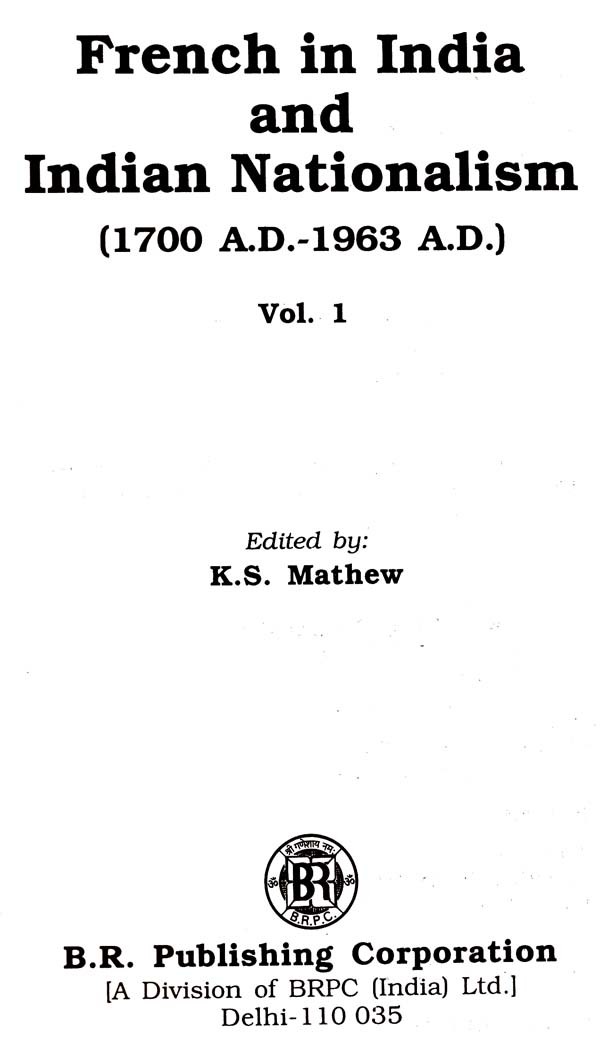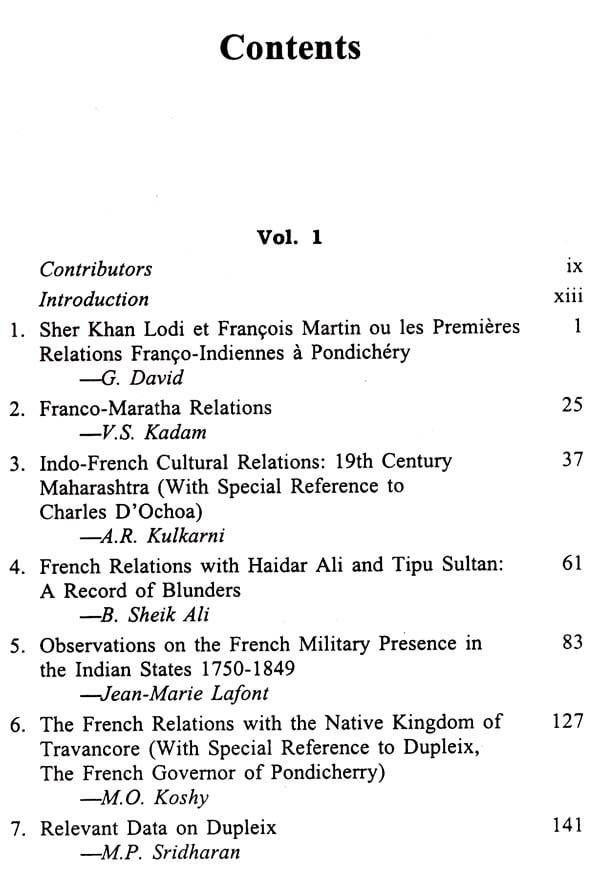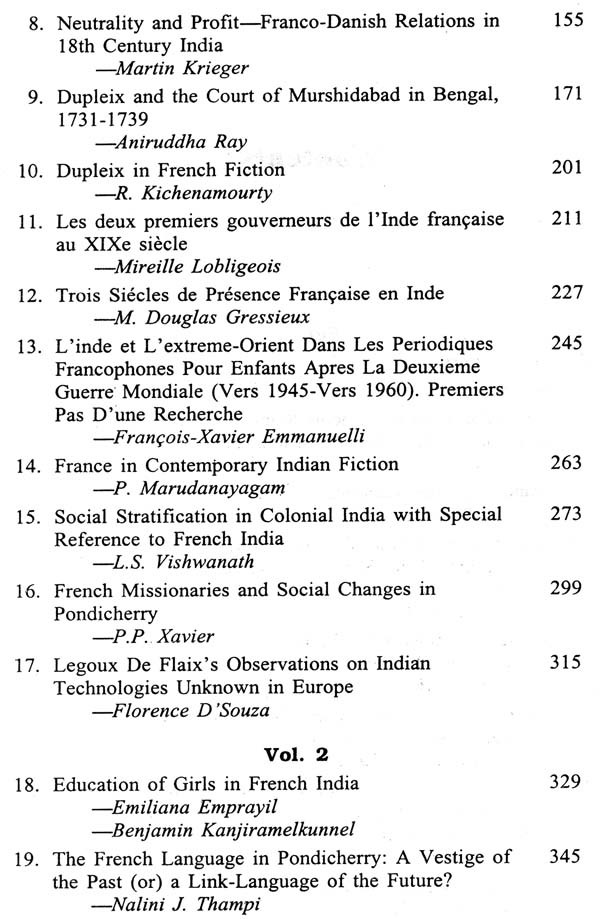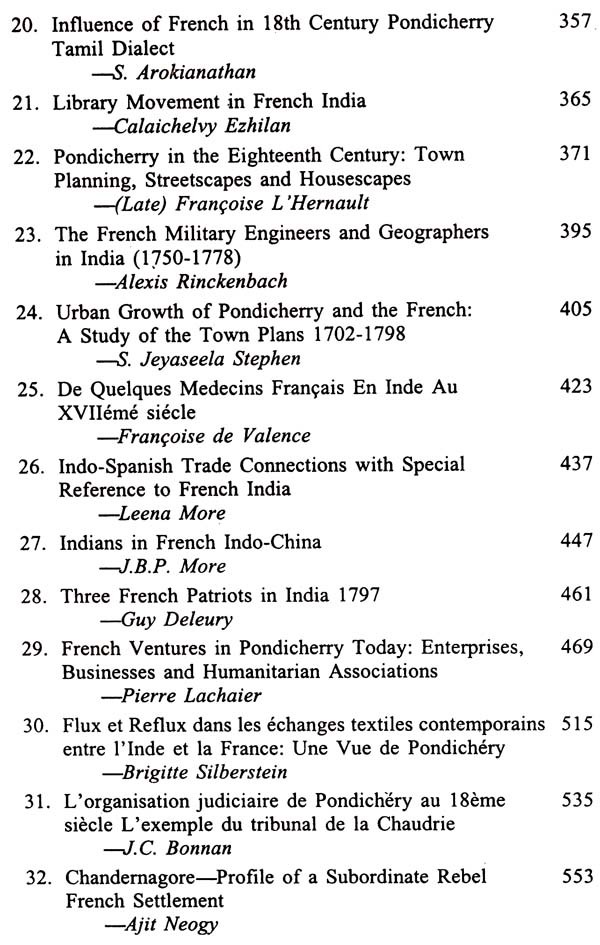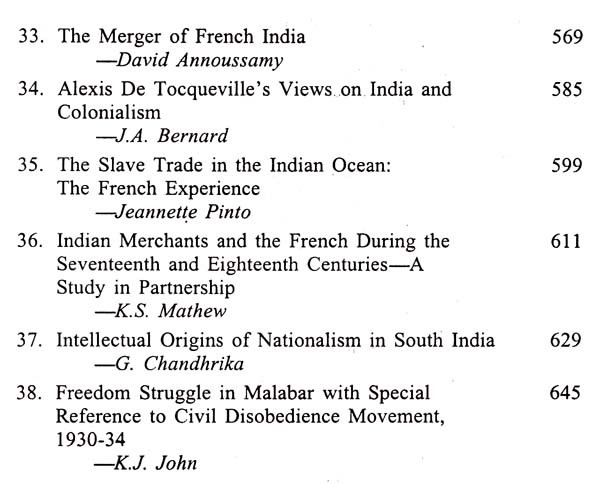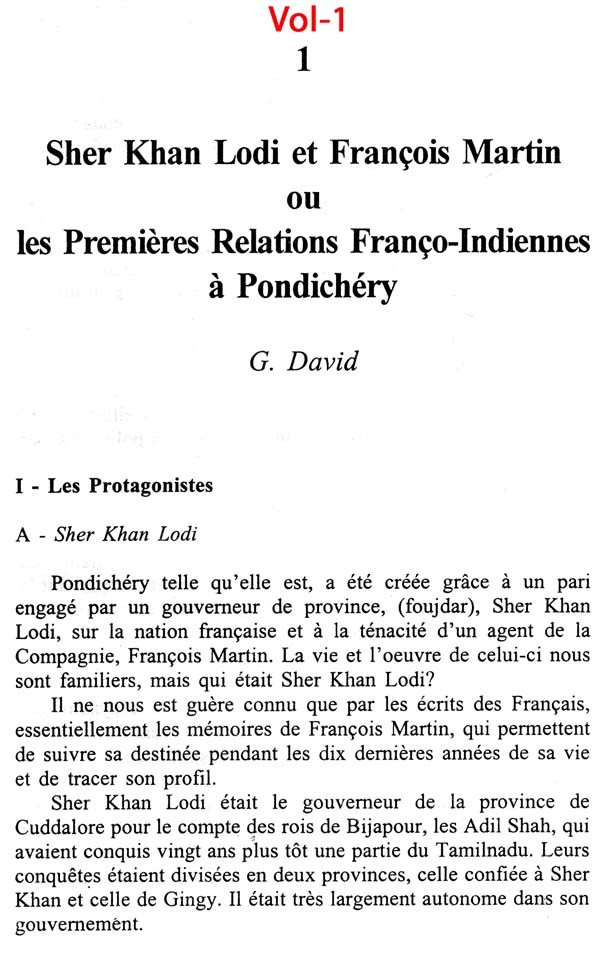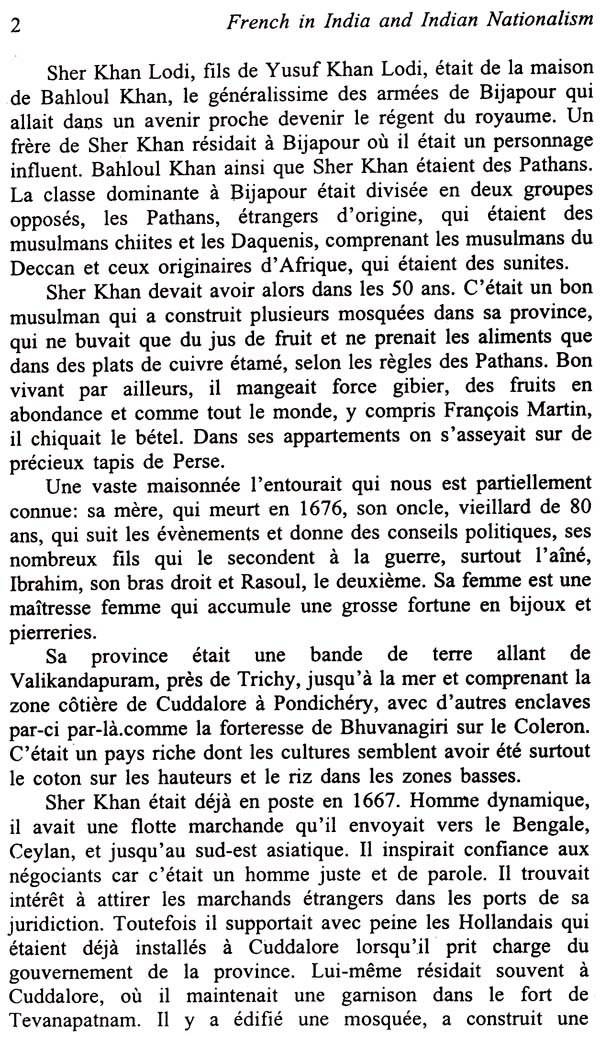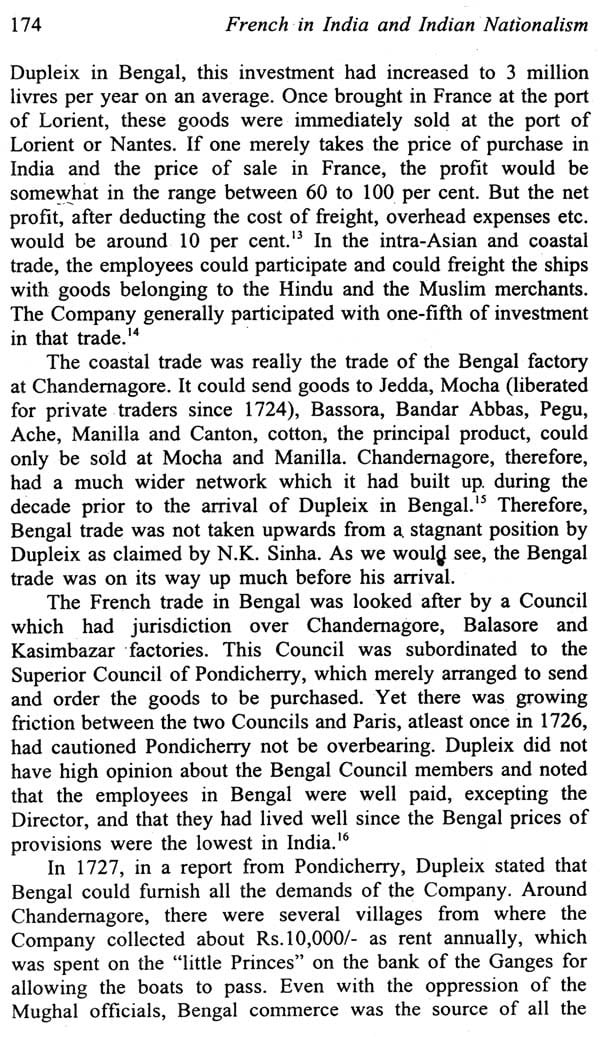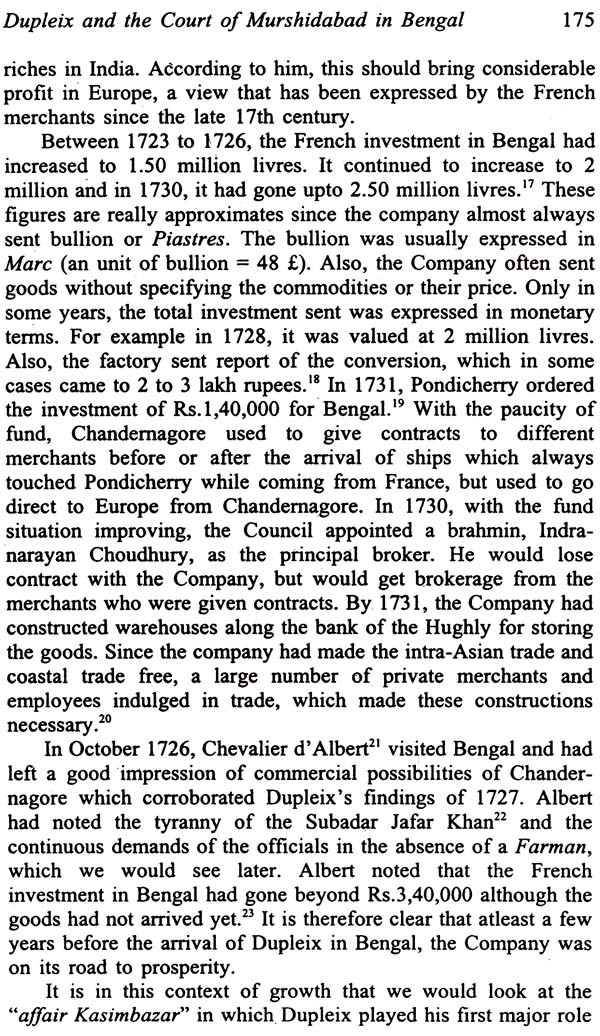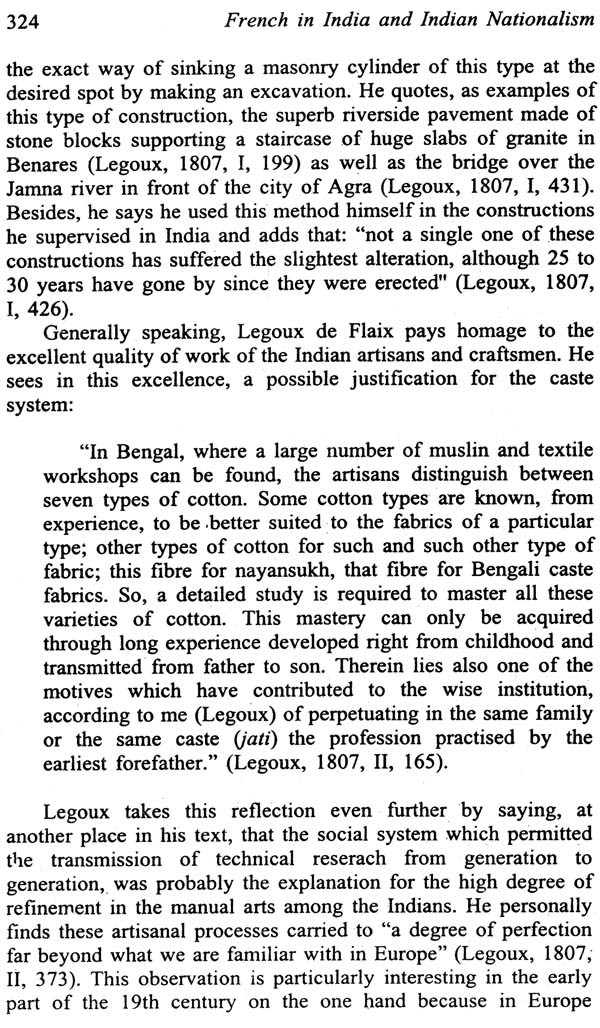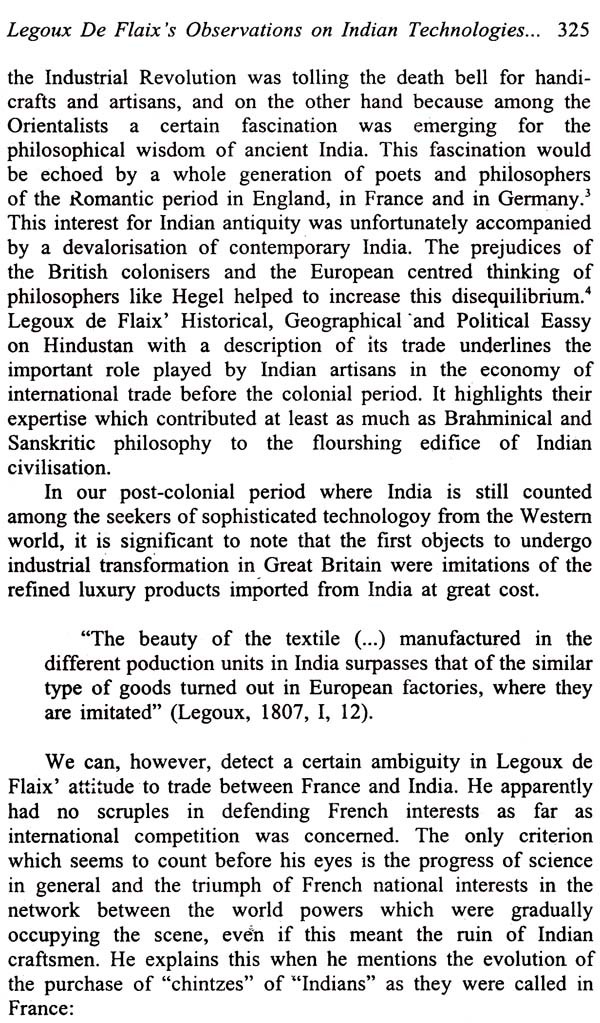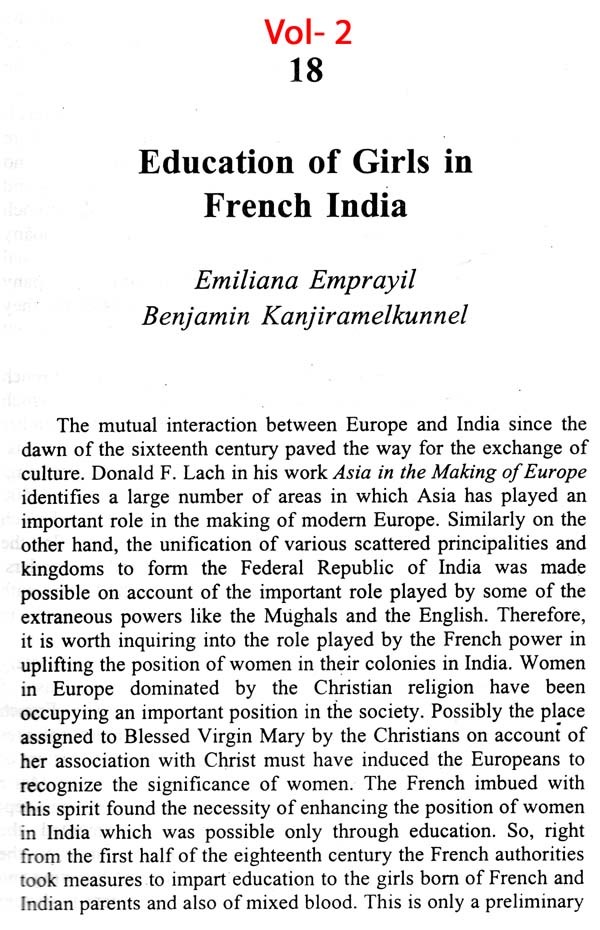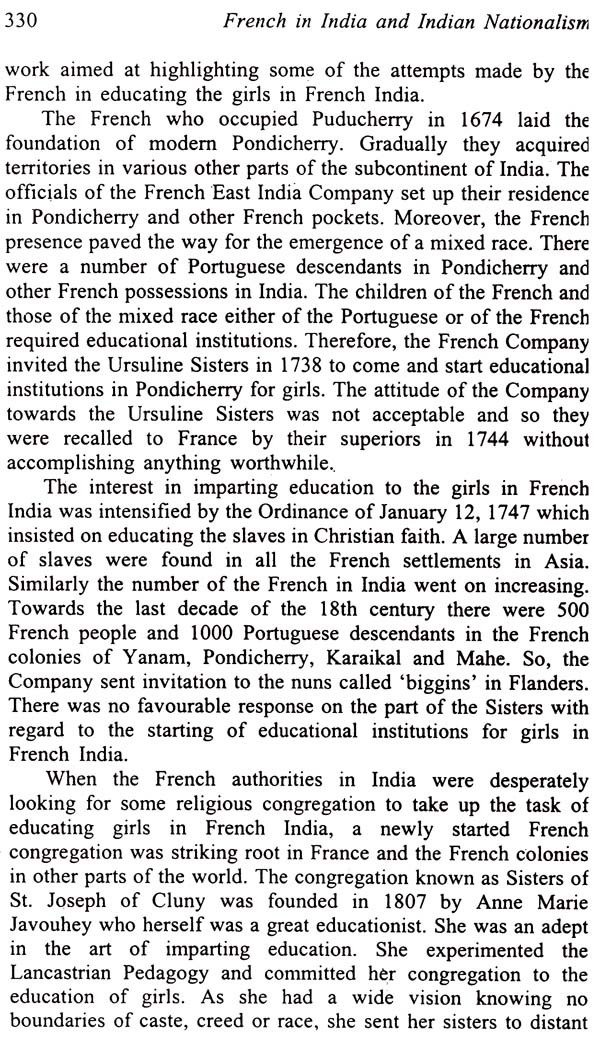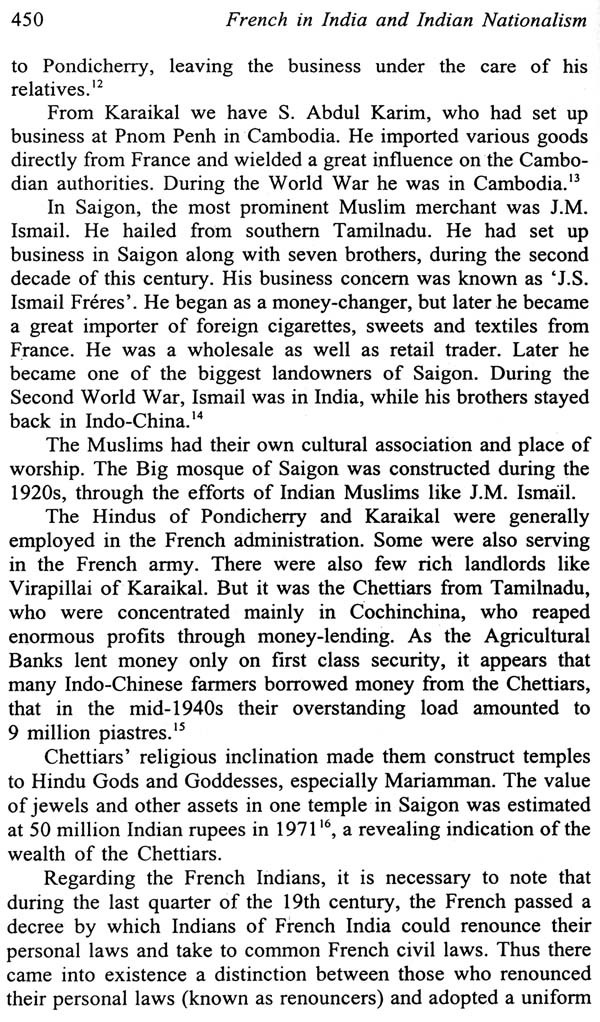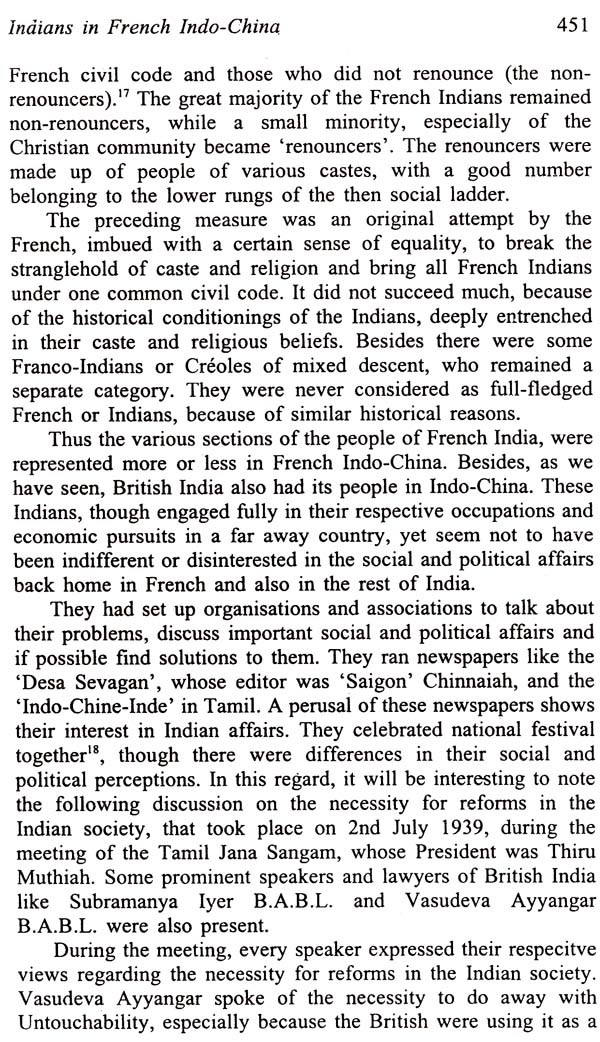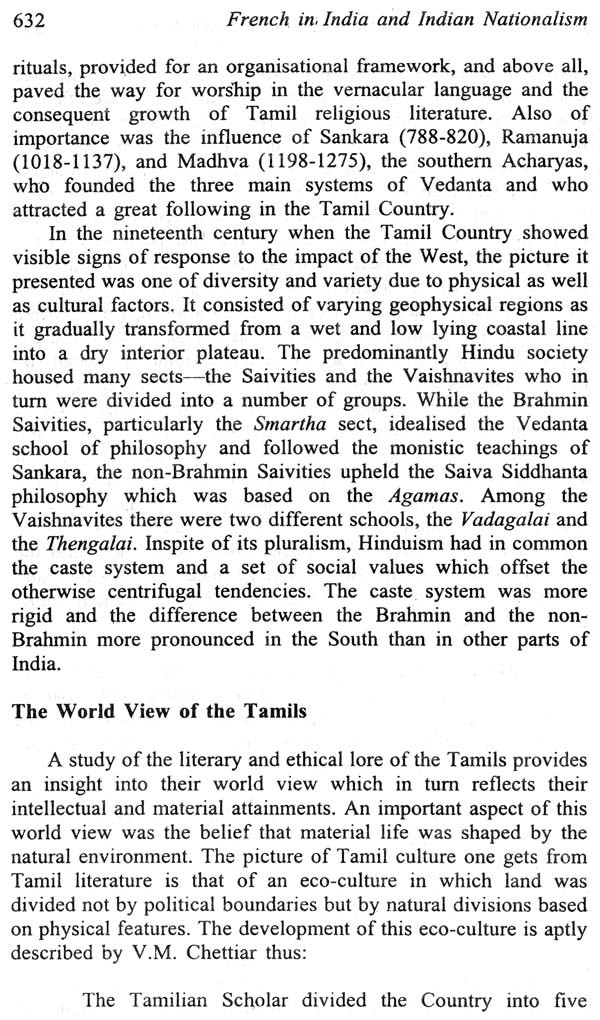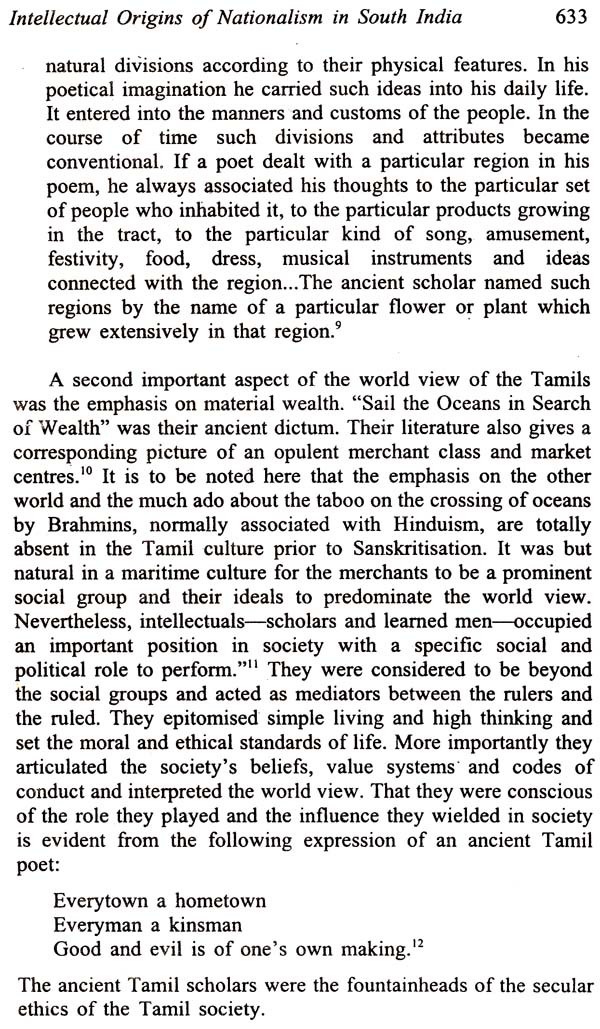About the Book Several European powers played an important role in the "amazing transformation of India from the status of the coveted country to the category of the so-called "third world or developing country This was effected through the process of colonial or imperial interactions lasting for a couple of centuries Countless adventurers, fortune-seekers and men of arms lost their life in their astute attempts to obtain a share of the golden goose of India, definitely not for the sake of civilising India or for sharing the burden of the country. The Portuguese who opened up India and the whole of East to the West European powers were followed by the Dutch, the English, the Danes, the Oostende’s and the French. In the bid for building up an empire, the French faced the invincible power of the English and were tolerated to hold on to a couple of enclaves on the eastern and western coasts of India. The British who won in this race for empire building compelled to withdraw from the Indian subcontinent on the face of unarmed and non-violent opposition of the Indian nationalists. Yet, the Portuguese, the first to come to India, and the French, the last to reach the subcontinent continued to linger on in India even after the disappearance of other European powers. At last in the early sixties of the twentieth century they left India under different circumstances. The enlightened visionary in Pandit Jawaharlal Nehru, despite his genuine nationalist sentiments, resolved to keep a window open to the French and offered domicile in India to all those French. nationals who wanted to stay here. Thus, at the moment there are over 8,000 French citizens in India enjoying the rare privilege of electing their representative for the democratic institutions in France and having their own cultural and academic institutions in India. This milieu of peculiar nature deserves special attention of the academicians and requires detailed study in the wake of nation-wide celebrations of the 50th anniversary of the Indian Independence.
Against this backdrop, an International Seminar was organized in the Department of History, Pondicherry University in 1997 covering different aspects of French contacts with India. The papers presented by the scholars from various parts of Europe and India are collected and edited in the present volume.
About the Author K.S. Mathew is Professor of History at the Pondicherry University. He was Visiting Fellow at the Wisconsin University, Madison, USA in 1989 and Visiting Professor at Ottawa University. Canada in 1991 and Visiting Professor for Maritime History in the Institute d'Histoire, University Michel de Montage, Bordeaux III, France for the summer semester of 1995. He was awarded the National Fellowship for Eminent Professor by the University Grants Commission (1993-95).
He has published extensively on maritime history in Journals and books brought out in India and abroad, and books authored/edited by him include: 1. Society in Medieval Malabar, 2. Portuguese Trade with India in the Sixteenth Century; 3. Portuguese and the Sultanate of Gujarat, 4. Indo-Portuguese Trade and the Foggers of Germany, 5. Chronica do Reyno de Gujarat; 6. Studies in Maritime History, 7. Emergence of Cochin in the Pre-industrial Era-A Study of Portuguese Cochin; 8. Mariners Merchants and Oceans-Studies in Maritime History, 9. Indian Ocean and Cultural Interactions (A.D. 1400-1800); 10. Ship-building and Navigation in the Indian Ocean Region (A.D. 1400-1800); 11. Canada: Its Regions and People; 12. Indo-French Relations (1700-1954) besides two books in Malayalam.
Introduction Several European powers played an important role in the "amazing" transformation of India from the status of the coveted or premier country to the category of the so-called "third world" or developing country. This was effected through the process of colonial or imperial interactions lasting for a couple of centuries. Innumerable adventurers, fortune-seekers and men of war lost their life in their astute attempts to obtain a share of the golden goose of India, definitely not for the sake of civilizing India or for "sharing the burden" of the country. The Portuguese who opened up India and the whole of the East to the avaricious Europeans and established firm relations with the subcontinent were followed by the Dutch, the English, the Danes, the Oostende’s and the French. The contradictions inherent in the set-up under colonial dispensation paved the way for its downfall. The exploited rose against a few of the colonial masters, who defeated their competitors in the struggle for survival and asserted their sway on the subcontinent. The Portuguese who ruled the Indian Ocean and countries bordering on it were relegated to the background by the Dutch and they confined their activities to a couple of settlements on the western coast of India. The Danes and the Dutch as well as the insignificant traders of Ostend disappeared from the scene giving way to the English. In the bid for building up of an empire, the French faced the invincible power of the English and were tolerated to hold on to a couple of enclaves on the eastern and western coasts of India.
**Contents and Sample Pages**
